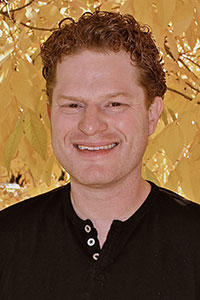Abstract:
Optical microscopy plays a pivotal role in the understanding of spatial and temporal dynamics of biological systems and for probing material systems. Light interacts gently with biological systems, which makes imaging extremely powerful for observing living systems. As a result, optical microscopy enables everything from the discovery of basic biological processes to the ability to diagnose disease to the discovery of new materials. Optical microscopy is primarily bound by three limits: spatial resolution, molecular specificity of imaging targets, and imaging depth in tissue. My group develops new methods for extracting a greater range of information from optical microscopy. I will discuss several aspects of computational imaging with widefield nonlinear microscopy using second harmonic generation (SHG), third harmonic generation (THG), and coherent anti-Stokes Raman scattering (CARS). These imaging methods are extremely useful for imaging studies ranging from biological samples to novel material systems. In biological samples, SHG, THG, and CARS signal generation is dominated by signals from collagen in the extracellular matrix and from muscle fibers. I will discuss computational adaptive optics for SHG and THG holographic imaging. In addition, I will discuss a new widefield computational super resolution CARS microscopy that offers a powerful new approach to vibrational spectroscopic imaging.
Bio:
Randy A. Bartels is an Investigator at the Morgridge Institute for Research and a Professor of Biomedical Engineering at the University of Wisconsin - Madison. Prof. Bartels has been awarded the Adolph Lomb Medal from the Optical Society of America (now Optica), a National Science Foundation CAREER award, a Sloan Research Fellowship in physics, an Office of Naval Research Young Investigator Award, a Beckman Young Investigator Award, an IEEE-LEOS (now Photonics Society) Young Investigator Award, a Kavli Fellow of the National Academy of Sciences, and a Presidential Early Career Award for Science and Engineering (PECASE). His research involves the development of novel spectroscopy and microscopy techniques and ultrafast fiber lasers for use in these applications. He is a Fellow of the Optical Society of America and of the American Physical Society (APS). He serves on the Editorial Board of Applied Physics Letters, Photonics and is an editor for Optics Communications and for Science Advances.
Speaker:
Institution:
Location:

